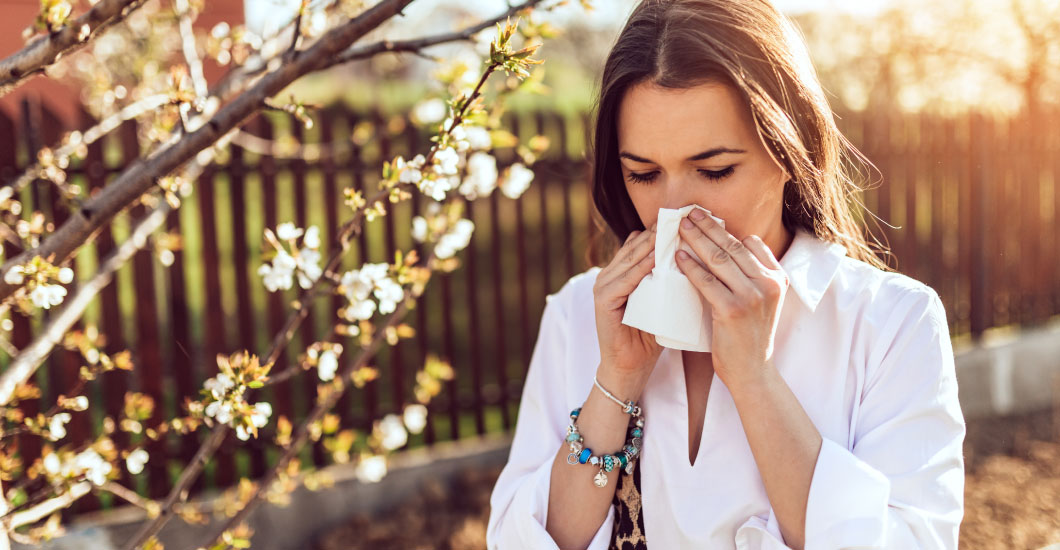Spring allergies are nothing to sneeze at — especially if you’re one of the nearly 30 million* Americans affected every year by tree, plant or grass pollen. But there are a couple of steps you can take to make allergy season more bearable.
1. Stress can make your allergy symptoms worse.
You read that right. The U.S. Misery Index (from the Bureau of Labor Statistics) traditionally spikes in the spring. It’s been elevated even higher the last year thanks to the pandemic. But stress increases the amount of histamine in your blood stream, contributing to annoying allergy symptoms. Taking steps to manage your stress could help make allergy symptoms more tolerable.
2. Pollen is basically unavoidable.
The timing of allergy season varies across the county, but no place is free of allergens. Tree and grass pollens thrive in the cool nights and warm days of spring and early summer. And those daily thunderstorms in the spring and summer — bet you didn’t realize they actually lead to a surge in pollen counts because they tend to kick up and swirl pollen around. Most major weather reports include pollen indicators that can help you identify ahead of time when you’re going to have problems.
3. Know your triggers and medicate early.
In many cases, you can identify your triggers by keeping a log of when and where you experience symptoms. Seasonal allergies are caused by the body’s overreaction to common pollens in the air. When you inhale these pollens, the immune system views them as a danger and attacks.
Antihistamines before outdoor activities can block or limit your body’s response so you experience fewer symptoms. Most people can stick to over-the-counter meds, but talk to your Sanitas provider about a prescription if your symptoms are particularly severe.
4. Limiting exposure is the best way to keep allergies in check.
If you control your environment, you might control your allergy symptoms. Simple steps can be taken to keep your living environment as pollen-free as possible, such as keeping your doors and windows shut as much as possible. Removing your shoes and clothes before entering the house, showering as soon as possible, and wiping down pets can all help.
5. Sinus infections are more common than you think.
Every year, 4.1 million people are diagnosed with sinusitis during a doctor visit.* Allergies can cause your nose and sinus passages to become inflamed and swell, which cause pain and pressure and set the stage for bacterial infection.
If you suspect that your allergy symptoms have progressed to a sinus infection, you should let us know — use the mySanitas Chat app, visit a Sanitas Urgent Care or schedule an appointment with your doctor.
*Statistics from CDC: https://www.cdc.gov/nchs/fastats/sinuses.htm



